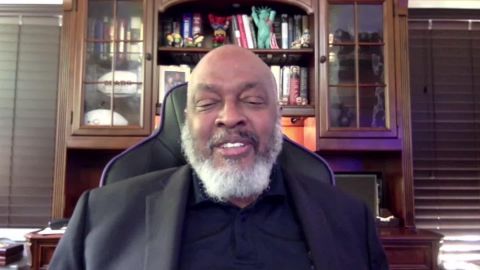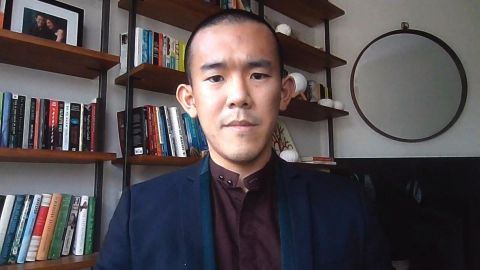Read Transcript EXPAND
CHRISTIANE AMANPOUR: Where is this going to go in the next weeks and months, do you think?
ED YONG, STAFF WRITER, THE ATLANTIC: I don’t think we’re on a very good trajectory. Much of this was predictable. Experts warned if states rushed to reopen too quickly, we would see rises in cases. We have seen that. They predicted that rising cases would soon be followed by rising deaths. We are seeing that now. And a lot of the near-term future is sort of baked in. There is a long lag between people going out and about with their normal lives, getting infected, then showing symptoms, then being sick enough to go to hospitals, then dying and showing up in national statistics. And that means that what we’re seeing now are the consequences of actions that people took about a month ago and the things that people are trying to do now to desperately stem the tide of this new surge will take a month to manifest. Meanwhile, we will see more cases, more hospitalizations, more deaths. And this is why the country needs to be watchful. It needs strong leadership, like Beto said. It needs to be prepared for what is to come rather than constantly playing catch-up to this virus.
AMANPOUR: Let me just play, because we talked about Anthony Fauci. We know that he’s now in a war, if you like, of rhetoric with the White House, not of his own making, but the White House is launching this war against him. He is speaking in a webinar to Stanford University. I just want to play what he said about what states could do now, or should do.
(BEGIN VIDEO CLIP)
DR. ANTHONY FAUCI, DIRECTOR NATIONAL INSTITUTE OF ALLERGY AND INFECTIOUS DISEASES: We did not shut down entirely, and that’s the reason why, when we went up, we started to come down and then we plateaued at a level that was really quite high. You don’t necessarily need to shut down again. But pull back a bit and then proceed in a very prudent way of observing the guidelines of going from step to step. There are things you can do now, physical distance, wearing a mask, avoiding crowds, washing hands, those things, as simple as they are, can turn it around.
(END VIDEO CLIP)
AMANPOUR: So, Ed, he’s not being alarmist. He’s saying we don’t need total shutdowns again, there are step-by-step measures that can be taken. He’s also saying we’re not nearly at the end of this pandemic, and that this is the big one. This is the perfect storm, the transmissibility, the ferocity of how it just moves around from human to human. What are you learning? What is the scientific community learning, if anything more, about it since, let’s say, the last time we talked a month or so ago?
YONG: Well, so, just to clarify, this is not the perfect storm, this is a big one, sure. It has upended the world, but this is nowhere near as bad as a pandemic could be. This virus does not have the lethality of other coronaviruses.
About This Episode EXPAND
Christiane speaks with Beto O’ Rourke about the politics of coronavirus in his home state of Texas. She also speaks with The Atlantic science writer Ed Yong about the latest on the virus and musicians Margo Price and Jeremy Ivey about Price’s new record. Walter Isaacson speaks with retired three-star General Vincent Stewart about why he chose to speak out about racism.
LEARN MORE



